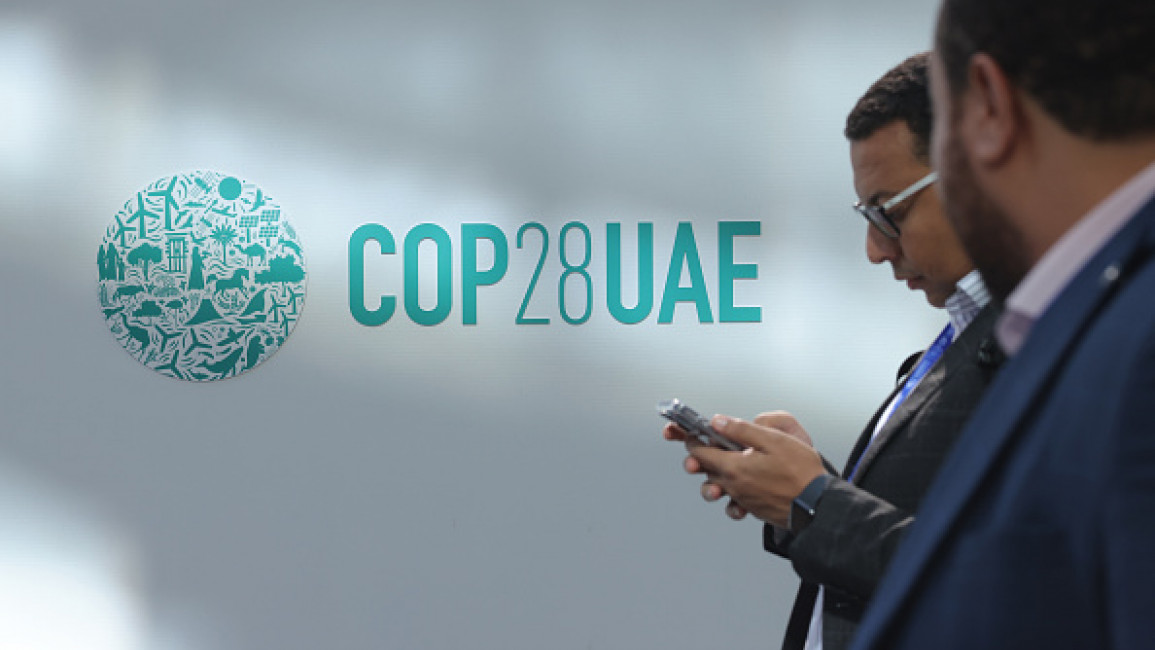COP28 enters crunch time with countries at odds over fossil fuels
The COP28 climate negotiations entered crunch time on Monday with countries set for a final summit face-off over whether to reach a global agreement to phase out fossil fuels.
U.N. Secretary General Antonio Guterres sought to encourage a consensus, saying a central benchmark of success for COP28 would be whether it yields a deal to reduce coal, oil and gas use fast enough to avert disastrous climate change.
"That doesn't mean that all countries must phase out fossil fuels at the same time," he told reporters at the Dubai summit, which is scheduled to end on Tuesday but could go on longer if negotiations drag on.
Guterres echoed a call from many developing nations that have said any COP28 deal to overhaul the world's energy system must be matched with sufficient financial support to help them do this.
"The gap does not relate to ambition, but the gap relates to the question of means of implementation," South African Environment Minister Barbara Creecy told other ministers on Sunday.
A coalition of more than 100 countries including oil and gas producers the United States, Canada and Norway, as well as the European Union and climate-vulnerable island nations, want an agreement that includes language to "phase out" fossil fuels, a feat not achieved in 30 years of the U.N. summits.
The emissions from burning fossil fuels are by far the main driver of climate change.
Since COP26 in Glasgow, COP parties have been divided over what language to use when talking about the end of fossil fuels. Could a feud over fossil fuels derail #COP28? ⬇ https://t.co/DQoymnScux
— The New Arab (@The_NewArab) December 8, 2023
Canadian Environment Minister Steven Guilbeault told Reuters a deal on phasing out fossil fuels was being opposed by OPEC, the club of oil-producing countries.
"They're opposed to the fossil fuel language, they're trying to block negotiations on just about everything else. And that's very unhelpful. And for parts of the world, life-threatening," Guilbeault said.
"We're the fourth largest oil and gas producer. We get it. It's complicated. It's unnerving. It creates uncertainty in parts of our country. But it's not a reason not to do it."
For oil-producing nations, a global deal at COP28 to ditch fossil fuels - even without a firm end date - could signal a political willingness from other nations to slash their use of the lucrative products on which fuel-producing economies rely.
Negotiators and observers inside the COP28 talks told Reuters that Saudi Arabia, de facto leader of the OPEC oil producers' group, was among the main opponents of a deal to phase out fossil fuels.
Saudi Arabia's government did not respond to a request for comment.
Deals at U.N. climate summits must be passed by consensus among the nearly 200 countries present. That high bar aims to establish a consensus on the world's next steps to tackle climate change, which individual countries should then make happen through their national policies and investments.
#COP28 Dubai and the unfolding crisis of climate exodus & displacement ⬇ https://t.co/1OmNR9x1Vx
— The New Arab (@The_NewArab) December 9, 2023
Speaking in a gathering of ministers and negotiators on Sunday, a representative for Saudi Arabia's delegation said a COP28 deal should not pick and choose energy sources, but should instead focus on cutting emissions.
"We have raised our consistent concerns over the attempts to attack energy sources instead of emissions," the representative said.
That position echoes a call made by oil producers' club OPEC in a letter to its members earlier in the COP28 summit, seen by Reuters, which asked them to oppose any language targeting fossil fuels directly.
The United Arab Emirates, itself a major oil producer, has urged countries to compromise to find a deal that includes fossil fuels.
Despite the rapid growth of renewable energy, today, fossil fuels produce around 80% of the world's energy.
Negotiators told Reuters other OPEC and OPEC+ members including Russia, Iraq and Iran have also resisted attempts to insert a fossil fuel phase-out into the COP28 deal. Singapore's environment minister Grace Fu said that the talks had progressed in some areas, but there still was "significant" work to do.
"We have more or less narrowed down the crucial and critical issues. Having said that, there are still some gaps," Fu told reporters on Monday.


![Minnesota Tim Walz is working to court Muslim voters. [Getty]](/sites/default/files/styles/image_684x385/public/2169747529.jpeg?h=a5f2f23a&itok=b63Wif2V)




![Debris near Rafic Hariri International Airport [Getty]](/sites/default/files/styles/image_212x120/public/2176162423.jpeg?h=a5f2f23a&itok=XLiO6WHk)
![An Israeli air strike on Jabalia killed teenage journalist Hassan Hamad [Screengrab/X]](/sites/default/files/styles/image_330x185/public/2024-10/hassan%20hamad1.jpg?h=c12e0b96&itok=Rd_dyCVp)
